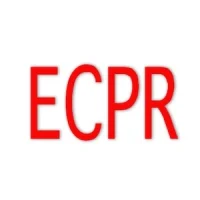The focus of the European Society of Cardiology Congress (ESC) is “The Heart Team”. It highlights the importance of teamwork and interactions between all professionals and specialties involved in managing patients with cardiovascular disease.
Experts speaking at the congress in Rome this week backed up this theme. Systematic guideline-based nurse case management, is an effective model for cardiovascular disease (CVD) risk reduction and can be implemented in a wide variety of settings both hospital and community, said Kathy Berra, Menlo Park, USA, speaking at the European Society of Cardiology (ESC) Congress in Rome this week.
Preventive care should focus on a lifespan approach, include families, be accessible, affordable and flexible and allow prescribing medications and protocols.
Success Factors
To be successful, nurse/ heart care team case management requires trust between the team and the patient and family, flexibility in appointments, appropriate educational materials, a case manager who can be easily reached, support from primary care providers and electronic communication for support.
A clinical framework to improve health outcomes requires acknowledgement of multi-morbidity as a clinical syndrome associated with poor outcomes. Patients with heart failure (HF) should be routinely profiled for multi-morbidity at hospitalisation.
Berra said that the nurse/heart care team model could be implemented worldwide. It has already been shown to be successful in hospital and community settings globally. The challenges are to provide professsional education in guideline-based medical therapies and lifestyle/behavioural change. Being able to prescribe medication is crucial, she added.
Christos Lionis, Crete, Greece delineated interprofessional collaboration. Interprofessional teams are teams that include different healthcare disciplines working together towards common goals to meet the needs of a patient population. Already in 2010 the World Health Organization recognised interprofessional collaboration in education and practice as an innovative strategy. Such collaboration requires willingness, trust, communication and mutual respect. Facilitators may be useful when interprofessional teams ae established. Organisational determinants also play a critical role. Healthy policy supports interprofessional teamwork, and there is supportive evidence that “team-based interventions in primary care can improve quality and effectiveness in cardiovascular health”.
Effecting Behaviour Change with Teams
The challenges of changing behaviour of heart failure patients were addressed in several presentations during the congress. The team is crucial in effecting such change, according to Nancy Houston-Miller. It is proven that what works in team-based care is “multidisiciplinary approaches across the continuum of care delivery and the lifespan.” It requires not only appropriate communication, but the use of theories/models and skills provided to individuals as they adopt and maintain health behaviours. Healthcare professionals must skill up in motivational interviewing, behavioural skills and theories to support health behaviour change, with the support of technology to expand the use of these techniques to large patient populations.
From Standardised to Patient-Centred Care
Anna Stromberg, Lindberg, Sweden, reinforced the team approach partnering with patients and families, urging delegates that “partnership is mandatory, not optional, team up!” Her advice is to always focus on the preferences and participation of patients and families as “they know best”. “They should be team members and/or co-designers in clinical practice, development of care, research, development and implementation of guidelines. Stop thinking “standardised” and start thinking “person-centred”, said Stromberg. Lists of topics to educate patients about should be replaced by “self-care” thinking, she concluded.
Radiologists Need to be Part of the Cardiac Team
Imaging was also a strong focus of the congress, with the wealth of imaging tools at the disposal of cardiologists. Developments in cardiac CT, ultrasound and more were all on the agenda.
Are radiologists an integral part of the cardiac team? They should be, said Jonathon Leipsic, Chairman of the Department of Radiology for Providence Health Care, British Columbia, Canada. The days of issuing a report and just sending if it off are over, he said.
Image credit: Pixabay
Latest Articles
teams, cariology, ESC Congress 2016
Experts speaking at the congress in Rome this week backed up this teamwork theme. Systematic guideline-based nurse case management, is an effective model for cardiovascular disase (CVD) risk reduction and can be implemented in a wide variety of settings b










